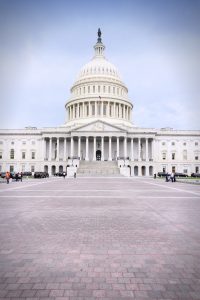 In a LinkedIn post on January 14, senior White House advisor Valerie Jarrett announced that President Obama would propose new initiatives to support working families in the form of paid sick leave as well as six weeks of paid time off after the birth or adoption of a child. While the paid sick time would apply across the country, the paid parental leave would be confined to federal employees at the moment. The hope is that these initial first steps will have a ripple effect through the states and that further action may be seen on the local level. California, Rhode Island, and New Jersey are the only states that offer paid parental leave at this time. A few other states offer paid sick leave.
In a LinkedIn post on January 14, senior White House advisor Valerie Jarrett announced that President Obama would propose new initiatives to support working families in the form of paid sick leave as well as six weeks of paid time off after the birth or adoption of a child. While the paid sick time would apply across the country, the paid parental leave would be confined to federal employees at the moment. The hope is that these initial first steps will have a ripple effect through the states and that further action may be seen on the local level. California, Rhode Island, and New Jersey are the only states that offer paid parental leave at this time. A few other states offer paid sick leave.
Of course, there was much discussion following the announcement and a frequent refrain was, don’t we already have parental and maternity leave? The short answer is yes. The Family Medical Leave (FMLA) Act of 1993 mandates 12 weeks of time off to care for a new child or ill family member. However, these 12 weeks are unpaid, leaving many lower income workers unable to take the time off. In higher-paying jobs, many people combine short-term disability with sick leave and vacation time to receive pay for that time off. This new initiative would at least provide six weeks of paid time, and while the US still lags behind other developed countries in this arena, it is a start. For example, France gives mothers 16 weeks of fully paid leave. The United Kingdom offers mothers 33 weeks of time off at 90% of their salary.
Another question was how the government would finance such a move and its impact on small business. These are valid points; however, it does not seem impossible to take steps to allow financial support for life’s inevitabilities: the birth or adoption and care of children and/or care of ill relatives. Legislative support for families has been slow in coming, despite politicians’ frequent refrain that family matters. It comes down to allocation of funds and potential taxation to provide these benefits. Not many politicians are eager to propose tax increases for fear of retribution during the next election. There is no question that the financial aspect needs to be worked out. But perhaps it is time for Washington to put substance behind the rhetoric and take action for paid leave.





